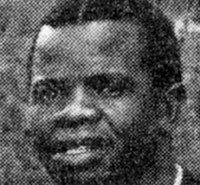Aubrey Mokoena

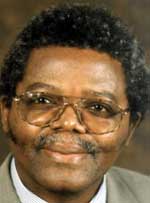
One of the first-string accused in the Treason Trial, he was born in 1913 in Grahams town and completed the sixth grade. He worked as a cigarette salesman in Port Elizabeth and was chairman of a local branch of the African National Congress.
Arrested for passive resistance during the 1952 Defiance Campaign and for holding and addressing various illegal meetings, he was already in prison at the time of the December 1956 treason arrests. He returned to Port Elizabeth at the end of the trial in 1961, suffering from failing vision.
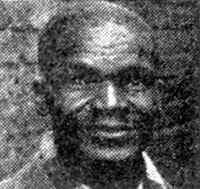
Rexon Mathebula also known as Scotch was born on 15 April 1926 in Sophiatown, Johannesburg. Mathebula left Sophiatown when he was seven years old and went to live with an aunt at Letaba, Tzaneen in the Northern Transvaal (presently known as Limpopo Province) until he was fifteen or sixteen years old. He spent the next nine years in the Duiwelskloof area engaged as a domestic worker and the following five years on a farm in Hoedspruit translating from Afrikaans into Sotho and Shangaan. Mathebula never attended school and had no art training.

Patrick Matanjana was born in 1943. Bra Pat, as he was affectionately known, was a member of the armed wing of the African National Congress, Umkhonto weSizwe (MK) and in 1967 he was sentenced by the apartheid regime to 20 years imprisonment on Robben Island.

Sibusiso Mashinini was born to Johannes and Catherine. Unlike his brothers and sisters, he was very quiet and more helpful at home. He was remarkably intelligent, which was noticeable at an early age. According to his father, when Mashinini was three, a dentist commented that his set of teeth told of his remarkable brilliance. At the age of about 11, he helped his father find an ageing uncle in the deep rural of the Orange Free State. As a result of Mahinini's persistence in investigating, through investigative letter writing, he located the uncle and communication resumed.

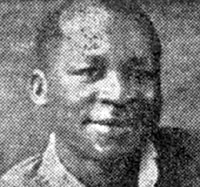
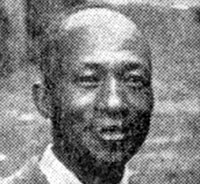
Born in 1914 Mahlangu was a trade unionist. As a domestic worker, Mahlangu took part in the 1942 anti-pass campaign and was sacked. Later he was again victimised after taking part in a strike at a power station. He became a full-time trade union secretary after entering the laundry industry. He was an Executive Committee Member of the South African Congress of Trade Unions from 1955-1956.
